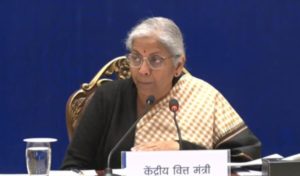40% Indian startups halt operations amid COVID-19: Nasscom

New Delhi: While 90 per cent tech startups in India are facing a decline in revenues due to the impact of COVID-19 pandemic, about 30-40 per cent have temporarily halted their operations or are in the process of closing down, a Nasscom survey warned on Tuesday.
About 34 per cent of start-ups are suffering revenue decline of over 80 per cent, showed the findings of the “Start-up Pulse Survey”.
While 70 per cent of travel and transport startups reported suffering 40 per cent revenue decline, 14 per cent of edtech, fintech and healthtech startups expect growth in revenue amid the COVID-19 crisis.
The month-long survey further revealed that 70 per cent start-ups have runway less than three months, with those in the business-to-customer segment majorly affected.
About 60 per cent of B2C startups are facing business closure, according to the report.
“However it is not all doom and gloom; more than half of the start-ups are looking to pivot to new business opportunities, diversify into growth verticals like healthcare, and enhancing focus on emerging tech like Artificial Intelligence, Internet of Things (IoT), Cloud,” said Debjani Ghosh, President, Nasscom.
“However, to ensure that the Indian start-up movement and its growth trajectory is not derailed, coordinated support from key stakeholders is the need of the hour. Some of our key recommendations to the government include access to working capital, easing compliances and fiscal policy and funding support,” she said.
To study the impact of COVID-19 on indian start-ups, Nasscom conducted an e-survey involving over 250 startups during April.
The responses were extensively analysed considering various parameters like growth stages, revenues, employees strength, revenue, verticals, etc.
The report stressed on the need of integrated central-state initiatives on procuring “Made in India” start-up products and solutions.
With over 9,300 tech start-ups, India continues to be the third largest tech startup ecosystem in the world.
IANS







